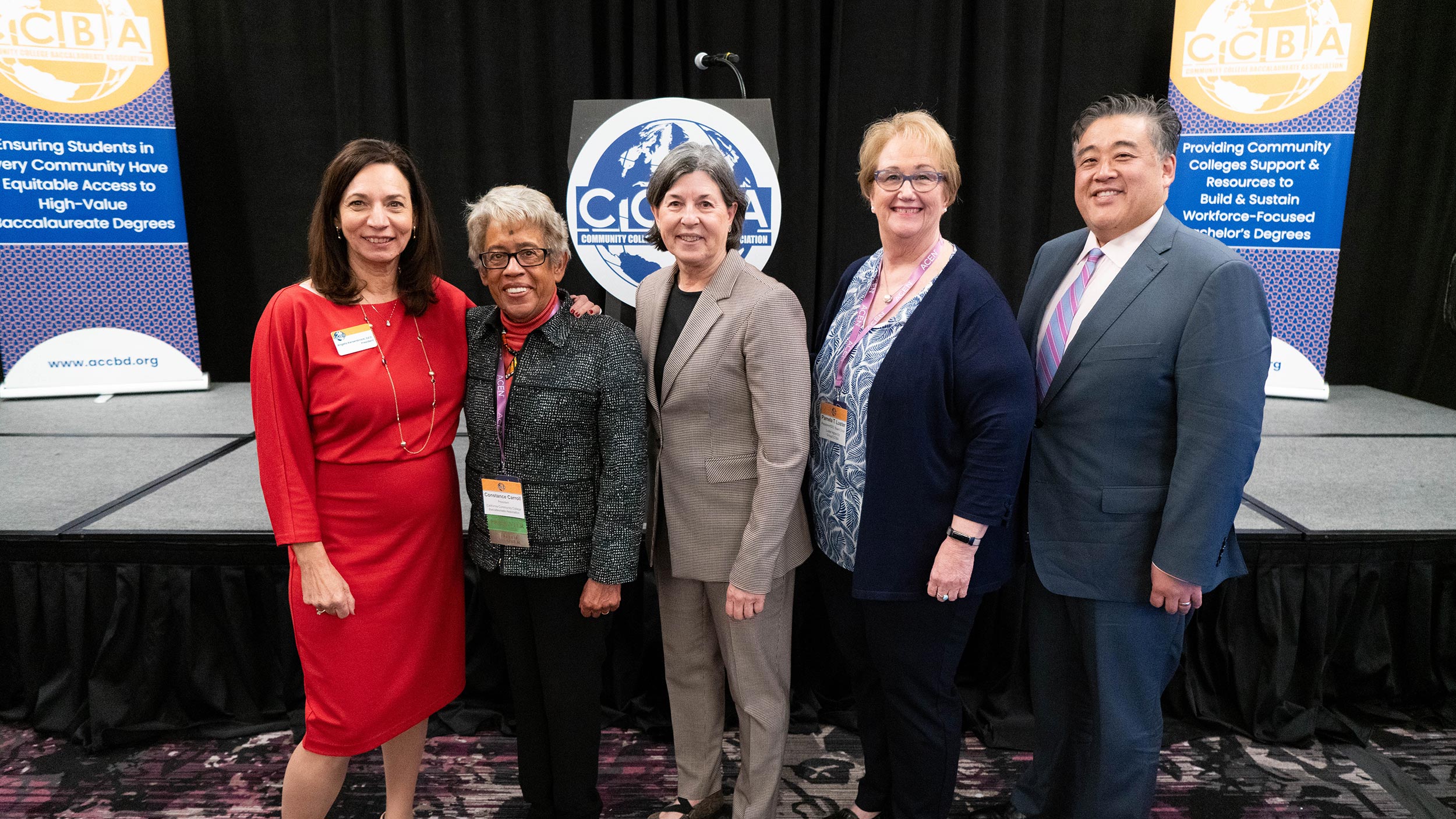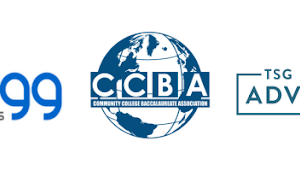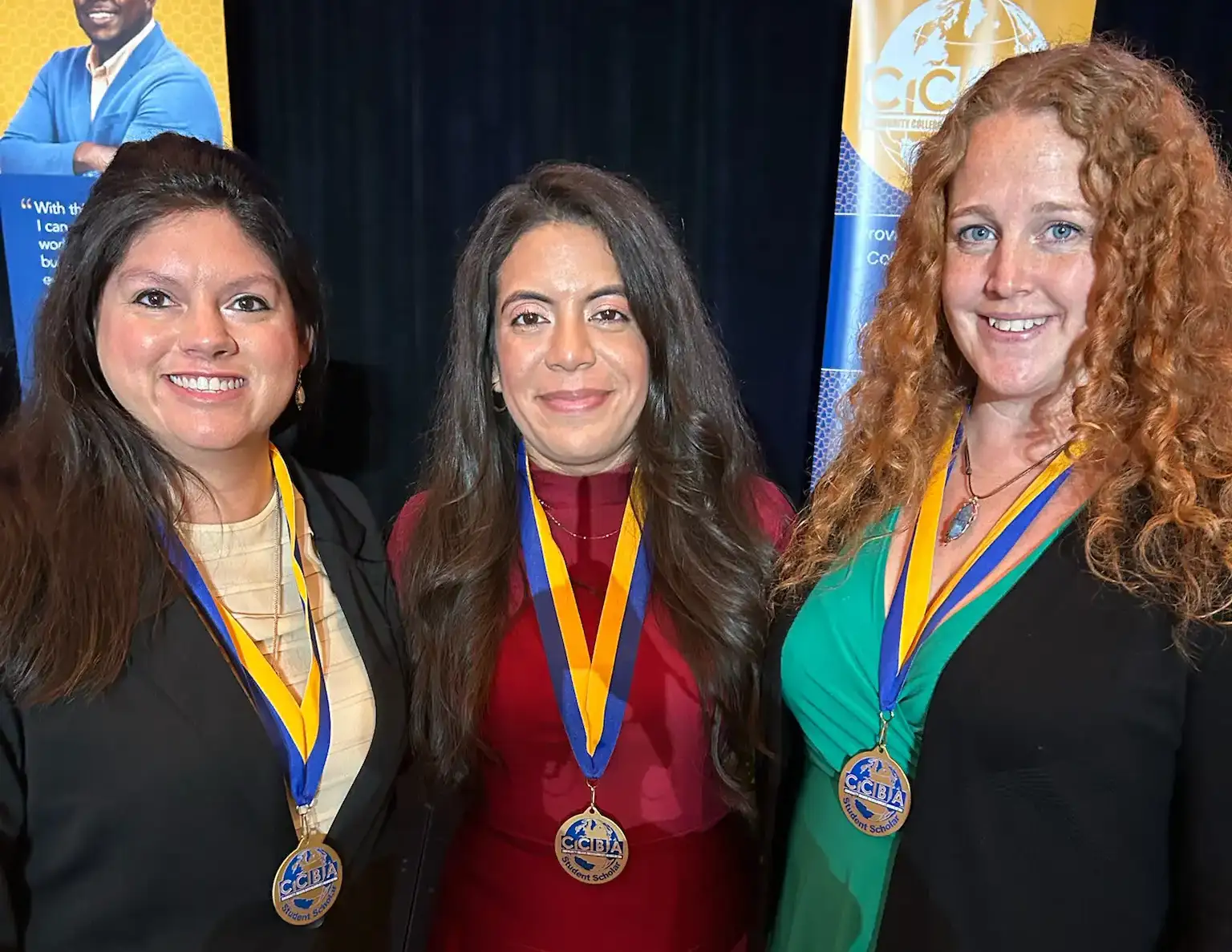CCBA Convenes its Network
“We challenge participants to think big and strategically” CCBA Convenes its Network
By Colleen Pawlicki
Community College Baccalaureate Association (CCBA) brought together educators, college leaders, researchers, students, and other stakeholders from across the country for the CCBA 2024 National Conference on February 14-16. Held in Savannah, Georgia, participants convened to share promising practices, connect with peers working in the community college baccalaureate (CCB) space, and honor stand-out CCB players, from trailblazing community college leaders to exemplary students. CCBs are authorized in 24 states, and this conference highlighted practices and impacts that could compel the remaining 26 states to join.
A key focus of the conference was on research, including a pre-conference dedicated to current CCB research efforts. CCBA President Dr. Angela Kersenbrock shared, “We’ve had a lot of growth, and the difference maker in growth is research. Without research, we just have great stories, which don’t move the other 26 states.”
To bolster research efforts, CCBA partners with Bragg and Associates, Inc., a research organization led by Dr. Debra Bragg. Together, CCBA and Bragg have created a research pathway, including a CCB program inventory and promising practices of CCBs. With these pieces in motion, CCBA is turning its attention to quality, presenting attendees with their new thought paper on elements of quality that they posit make effective CCB programs.
Conference attendees know that bachelor’s degrees are as important as ever. Featured speaker Melanie Heath, strategy director for participation at Lumina Foundation, stated: “We’re in a time when people are asking: ‘Is college worth it?’ One thing we do know, is the answer is yes, period. Bachelor’s degrees are still the surest path to the middle class.”
With many barriers to university education, CCBs provide an equitable option. “Access to the bachelor’s degree is a question of equity. Baccalaureate degrees are still a gold standard, so access to and completion of them is an equity issue,” said Dr. Karen Stout, CEO of Achieving the Dream, during her keynote speech.
A promise of equity can be seen in the most recent CCB data: 50% of CCB-conferring colleges are Minority-Serving Institutions, with 76% of these colleges designated as Hispanic-Serving Institutions. Sixty-four percent of CCB graduates are women.[i]
Further, a fair percentage of CCB enrollees are adults in the workforce, and the flexibility of the programs allows learners to earn their degrees while maintaining their jobs. CCBA student scholar Christopher Ward shared in his acceptance speech: “Most students just need that spark of opportunity. I was able to work 40 hours a week and still take classes. The different locations helped me, and the cost was half.”
CCBs also address equity in communities. During her panel conversation, CCBA Pioneer Award honoree Dr. Tonjua Williams, president of St. Petersburg College asserted: “Community colleges are going to solve the issues of access in our communities. We need to be the community’s college and the workforce engine of the community.” Having CCBs available in communities, especially in rural areas that may not have nearby universities, allows students to get a bachelor’s degree while staying close to home, helping communities to retain their local talent.
The conference highlighted that CCBs serve a unique group of students who otherwise would not pursue a degree at a four-year institution. “CCBs are not diverting students away from other pathways. This is a new group of students [participating in CCBs],” assured conference presenter Dr. Lorenzo Baber.
It was difficult not to feel inspired by the convening, in part because of the impact possible with CCBs. “The story of CCBs is very individual and very personal. CCBs are about innovation, change, and being bold,” shared Bragg. And conference participants felt that energy. Attendee Celia Nuñez shared: “By 10 am [at the pre-conference], it has already been worth the travel and effort to get here. I already have information I can take home.”
With engaged stakeholders, new research, and scale on the horizon, CCBA is hopeful for the future of community college baccalaureates. As Dr. Kersenbrock shared: “Through CCBs, we hope to unlock upward mobility for generations. “




